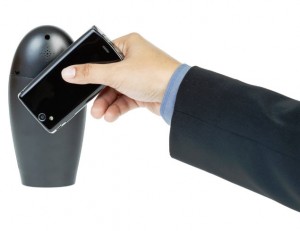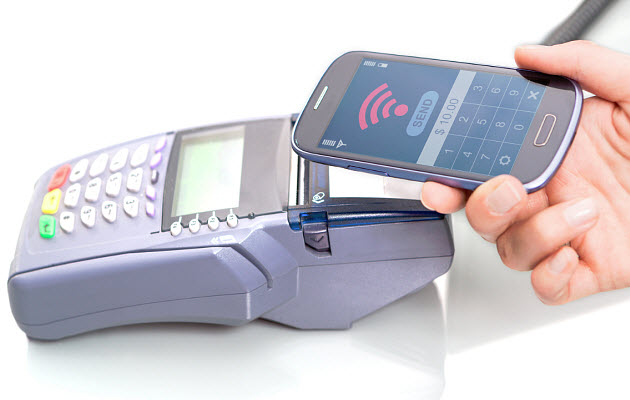Consumers prefer to shop from multiple devices
More people are starting to use their mobile devices to make purchases, according to a new report from Criteo. The report draws on analysis of 1.4 billion transactions made in 3,000 online, retail, and travel businesses. Notably, most consumers prefer to use a variety of different devices to do their shopping, but a growing number of people are beginning to use their smartphones to shop online and in physical stores.
Report shows that consumers prefer to shop for products on tablet devices
The report found that cross-device purchasing accounts for 40% of all transactions being made in the retail space. Of those purchasing on multiple platforms, 41% of these purchasing are being done on mobile devices, while 37% of these purchases are being completed with a desktop. Tablets are proving to be more popular than smartphones when it comes to mobile commerce, as the report shows that 43% of purchases are being made on these platforms. Consumers appear to favor tablets because they offer a more enjoyable and convenient shopping experience.
Retailers continue to look for effective ways to engage mobile consumers
 Retailers are finding it difficult to effectively engage mobile consumers. Providing consumers with an enjoyable mobile experience has proven challenging and retailers have yet to find an effective service that can meet their needs. Retailers may have to focus on improving the mobile shopping experience by optimizing their websites to be more mobile friendly. They may also benefit from launching applications that support mobile commerce.
Retailers are finding it difficult to effectively engage mobile consumers. Providing consumers with an enjoyable mobile experience has proven challenging and retailers have yet to find an effective service that can meet their needs. Retailers may have to focus on improving the mobile shopping experience by optimizing their websites to be more mobile friendly. They may also benefit from launching applications that support mobile commerce.
Mobile commerce may eventually become the favored way for people to purchase products that they are interested in
While mobile commerce has begun to grow aggressively, traditional transactions are still significantly higher. Consumers continue to favor using physical currency and payment cards to make their purchases and have expressed some concern over the security of mobile commerce. As mobile payment services become more secure, the behavior of consumers is expected to change, with more people opting to use their mobile devices to shop for and purchase products, both online and off.
New point-of-sale system will support mobile transactions made through various services
Sweden’s iZettle, a developer of point-of-sale systems, has launched a new mobile point-of-sale product that is meant to work with both chip and PIN mobile payments. The product has an emphasis on Apple Pay and similar payment services. These services have become quite popular with consumers because they allow people to make payments with their mobile devices. This is considered a convenient way to pay for products, but there are relatively few mobile point-of-sale systems that are available in the retail space.
Global launch of new system expected to occur later this year
Growing demand for these systems has lead iZettle and other companies to develop new products that can accommodate changing trends in the retail space. The company’s new system, called the Card Reader Pro Contactless, will be distributed to select partners in the United Kingdom. A broader launch will come in June. Global launch will occur in the following months. The system itself costs approximately $122, with price variations depending on certain markets.
Small retailers may find benefit in iZettle’s new product
 The new system may be particularly useful to small companies that are interested in mobile payments. Small retailers have been slow to embrace mobile payments because of the costs associated with converting conventional point-of-sale systems into mobile capable systems. Smaller retailers want to engage mobile consumers, but do not necessarily have a way to support mobile payments. The new point-of-sale system could help solve this problem by giving these retailers the tool they need to finally break into the mobile space.
The new system may be particularly useful to small companies that are interested in mobile payments. Small retailers have been slow to embrace mobile payments because of the costs associated with converting conventional point-of-sale systems into mobile capable systems. Smaller retailers want to engage mobile consumers, but do not necessarily have a way to support mobile payments. The new point-of-sale system could help solve this problem by giving these retailers the tool they need to finally break into the mobile space.
System could be an effective way for retailers to engage mobile consumers
The mobile system will support numerous mobile payments apps, including Google Wallet. The system is meant to cater to the convenience of mobile payments and allow both retailers and consumers an easy and effective way to engage in a new form of commerce that has emerged as a result of mobile technology. Of course, iZettle is not the only company to bring a mobile point-of-sale system to the market, so it will have to compete with others in the retail space to find success.
 Retailers are finding it difficult to effectively engage mobile consumers. Providing consumers with an enjoyable mobile experience has proven challenging and retailers have yet to find an effective service that can meet their needs. Retailers may have to focus on improving the mobile shopping experience by optimizing their websites to be more mobile friendly. They may also benefit from launching applications that support mobile commerce.
Retailers are finding it difficult to effectively engage mobile consumers. Providing consumers with an enjoyable mobile experience has proven challenging and retailers have yet to find an effective service that can meet their needs. Retailers may have to focus on improving the mobile shopping experience by optimizing their websites to be more mobile friendly. They may also benefit from launching applications that support mobile commerce.
 The new system may be particularly useful to small companies that are interested in mobile payments. Small retailers have been slow to embrace mobile payments because of the costs associated with converting conventional point-of-sale systems into mobile capable systems. Smaller retailers want to engage mobile consumers, but do not necessarily have a way to support mobile payments. The new point-of-sale system could help solve this problem by giving these retailers the tool they need to finally break into the mobile space.
The new system may be particularly useful to small companies that are interested in mobile payments. Small retailers have been slow to embrace mobile payments because of the costs associated with converting conventional point-of-sale systems into mobile capable systems. Smaller retailers want to engage mobile consumers, but do not necessarily have a way to support mobile payments. The new point-of-sale system could help solve this problem by giving these retailers the tool they need to finally break into the mobile space.